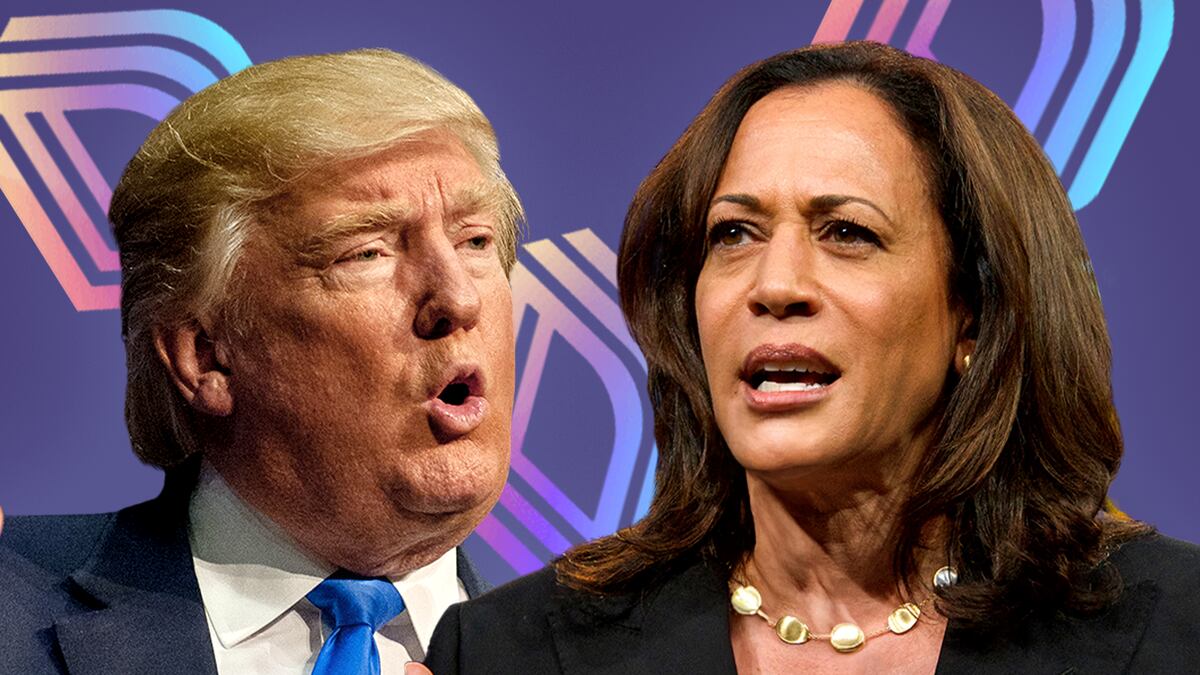- Polymarket is leading the lucrative prediction market segment.
- However, Drift Labs is challenging its dominance with a rival platform.
- Its secret weapon? Tapping into the deep pockets of the Solana network.
Crypto prediction markets have exploded in popularity this year.
These platforms let users bet on everything from the outcomes of sporting events, geopolitics, and even the highest grossing movie of the year.
But by far the most popular bets are for those surrounding the 2024 US presidential election.
Drift Labs, the firm behind the trading platform Drift protocol, is attempting to cash in on the demand for election betting to lure users and challenge top prediction market Polymarket’s dominance.
On Monday, it will launch its own rival prediction market on the Solana blockchain.
“[Over] 95% of open interest is currently sitting in presidential elections-related bets,” Cindy Leow, co-founder of Drift Labs, told DL News. “That will be the main focus of our prediction markets until the elections settle.”
The potential rewards are big.
Polymarket recently hit $1 billion in overall betting trading volume.
Users have poured over $468 million worth of bets into the platform’s top market: Who will win the 2024 US election.
That single market is more than Drift’s $415 million in user deposits.
Other election-related bets on Polymarket, such as who will be the Democratic party Vice President nominee, are also wildly popular.
But breaking into the market could prove difficult. The Polymarket brand has become synonymous with prediction markets and has a broader appeal than just crypto users.
Prediction problems
While prediction markets are popular, they aren’t without controversy.
In 2023, bettors complained about the outcome of a $2.2 million market asking whether or not the Titan submersible, which was lost during a tour of the wreckage of the Titanic, would be found by a certain date.
Then in May, another dispute — this time with $10.8 million on the line — arose surrounding the US Securities and Exchange Commission’s approval of Ethereum exchange-traded funds.
Drift aims to avoid such issues with its prediction market by having an in-house security council list and arbitrate markets instead of letting users create markets themselves as Polymarket does.
Polymarket did not immediately respond to DL News’ request for comment.
Political prediction markets often produce edge cases that require nuanced interpretation, Leow said.
She gave the result of the 2020 presidential election as an example.
“Premature claims of victory circulated on social media — i.e. Trump tweeting ‘we won!’” she said. “A purely smart contract-based arbitration relying on news reports could have led to incorrect market resolutions.”
When markets are disputed, resolving them is also contentious.
Polymarket hands off decisions to UMA, a DeFi protocol that aims to settle others’ disputes with token voting.
Critics have previously accused UMA’s decision making process of collusion, something UMA founder Hart Lambur has pushed back against.
Drift’s approach comes at a cost — it will be less decentralised than Polymarket. But it should help avoid disputes.
And there’s scope for Drift to make its platform more decentralised in the future.
Leow said that as more sophisticated infrastructure develops, Drift is open to transitioning towards a fully permissionless resolution model.
Polygon vs Solana
Polymarket runs on the Ethereum-compatible Polygon blockchain, which hosts some $893 million of deposits in DeFi protocols.
Solana, on the other hand, has $5.2 billion worth of deposits — over five times Polygon’s.
Those with assets on Solana who want to access prediction markets must use a crypto bridge to send assets over to Polygon.
Such bridges can be clunky, costly and sometimes introduce security risks.
As the first Solana-based prediction market, Drift can appeal to the blockchain’s much bigger pool of capital, and provide an option for users who aren’t interested in bridging their assets to Polygon.
But there’s no guarantee Drift will be successful.
Despite being one of the first derivatives protocols on Solana, Drift has been narrowly outcompeted by FlashTrade, a newer entrant. It will have to be careful that the same situation doesn’t happen again with its prediction market.
Leow is keen to appeal to Drift’s existing user base to kick start the market. “We already have 200,000 traders who primarily trade perpetual futures and are keen to trade other volatile assets such as prediction markets,” she said.
Drift also plans to expand beyond politics to include other events, such as sports.
“Our audience is first and foremost crypto users,” she said. “We will use our prediction markets contracts to list any market that is of interest to a crypto trader audience.”
Tim Craig is a DeFi Correspondent at DL News. Got a tip? Email at tim@dlnews.com.









